There are a multitude of ways in which destinations can utilize AI (Artificial Intelligence) technology for their benefit. Artificial Intelligence is changing the world of travel through Chatbots, Virtual Assistants, and AI generated ads aimed at reaching new audiences. While the future is uncertain, destinations can take advantage of this modern technology by learning how to utilize it for good.
Artificial Intelligence is being met with increased importance in the world of travel, but it is even harder to define. While the full capabilities of the technology are unknown, the technology seeks to be a disruptive force within our industry presenting an opportunity for destinations to learn its full potential and its impacts for their destination. AI technology refers to computers or machines performing tasks that are typically performed by humans; learning lessons, decision-making, and interpreting speech. Within the travel industry, there are benefits to utilizing this technology for destinations as it can improve efficiency and save businesses both time and money. Chatbots, for example, can help improve personalization, make tailored recommendations, and guarantee faster response times without staff. Through Virtual Reality, new audiences can discover destinations for the first time, experiencing them in a new light. Further, it has recently been discovered that Artificial Intelligence can perform complex tasks typically performed by humans such as data analysis, calculations, and problem solving, proving to be of value for tourism stakeholders.
![]()
ChatGPT is recent technology developed by Microsoft to have interactions in a dialogue format that can answer follow-up questions, admit mistakes, challenge incorrect premises, and reject inappropriate requests. The technology has exploded in recent months as more companies seek ways to utilize the platform for its benefit. On the platform, humans can put in a prompt regarding travel planning for instance and the technology will then send out a detailed response back that would resemble a human. In this instance, I asked ChatGPT to detail the role of a destination organization in the promotion of travel and tourism. In response, I received a detailed response that explained the destination organization’s role in the community as well as promotion and advertising. Along with Marketing and advertising, ChatGPT defines the destination's role as branding, partnership development, visitor services, research & analysis, stakeholder engagement, and crisis management.
Question: What is the Role of a Destination Organization?
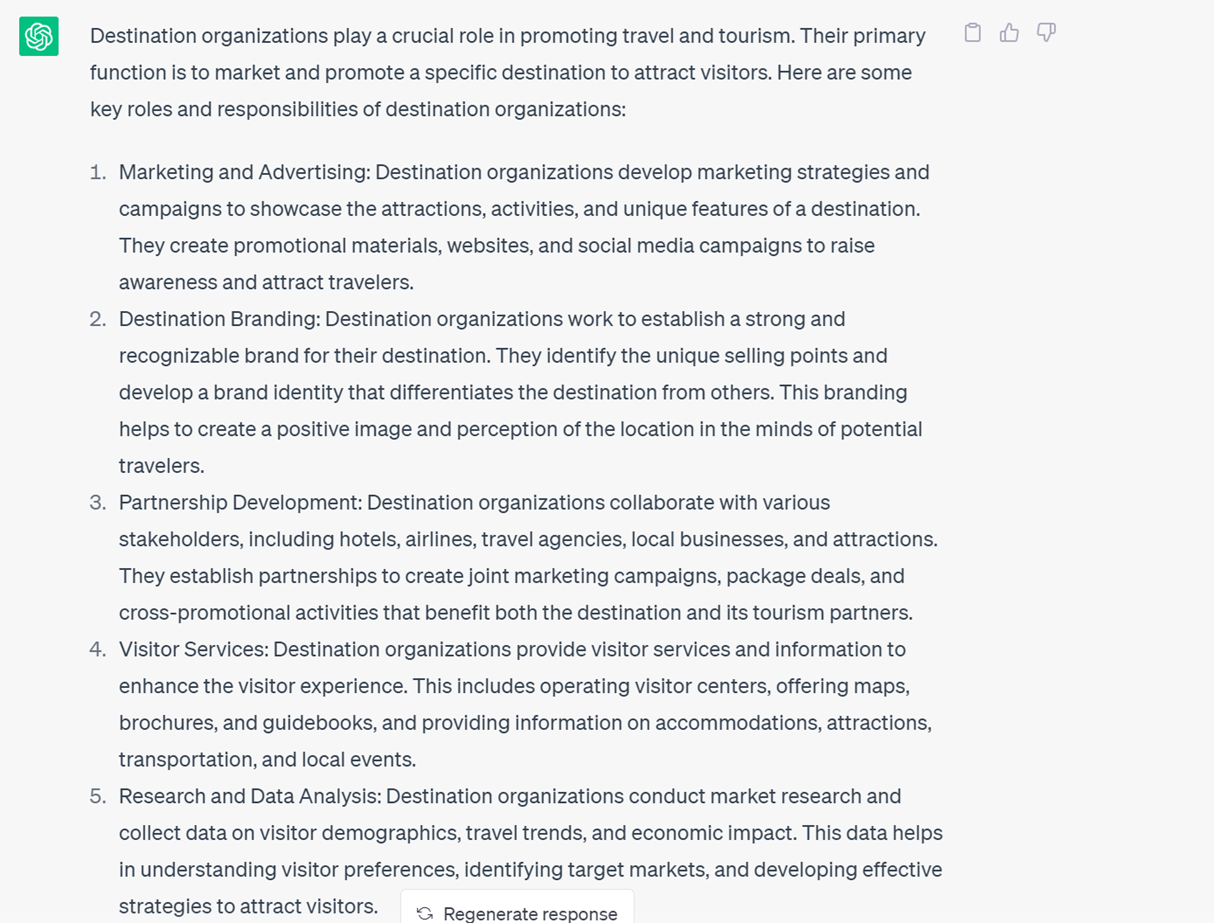
In terms of crisis management, the technology assumes the role of a destination organization playing a critical role in managing the situation by providing timely and accurate information to visitors and stakeholders. Regarding the role of destination organization, ChatGPT responds that tourism organizations act as advocates for their respective destinations, promoting tourism, attracting visitors, and ensuring a positive and memorable experience for travelers. Further, an organization’s efforts contribute to the economic growth, employment opportunities, and sustainable development of the destination. In reference to political flashpoints, the technology acknowledges the limitations of a destination organization to control political events and conflicts. Rather, an organization's role in managing political upheaval is to manage the impact on tourism, support stakeholders, and maintain the reputation of a destination to the best of their abilities. Also mentioned was the need for diversification and risk management to diversify visitor audiences, promote various types of tourism, and implement risk management plans to mitigate the impact of political flashpoints on tourism. Regarding advocacy, ChatGPT mentions working with government officials to voice concerns and seek solutions that are in the interests of the tourism industry.
Question: What is the role of a Destination Organization in Navigating Political Flashpoints?
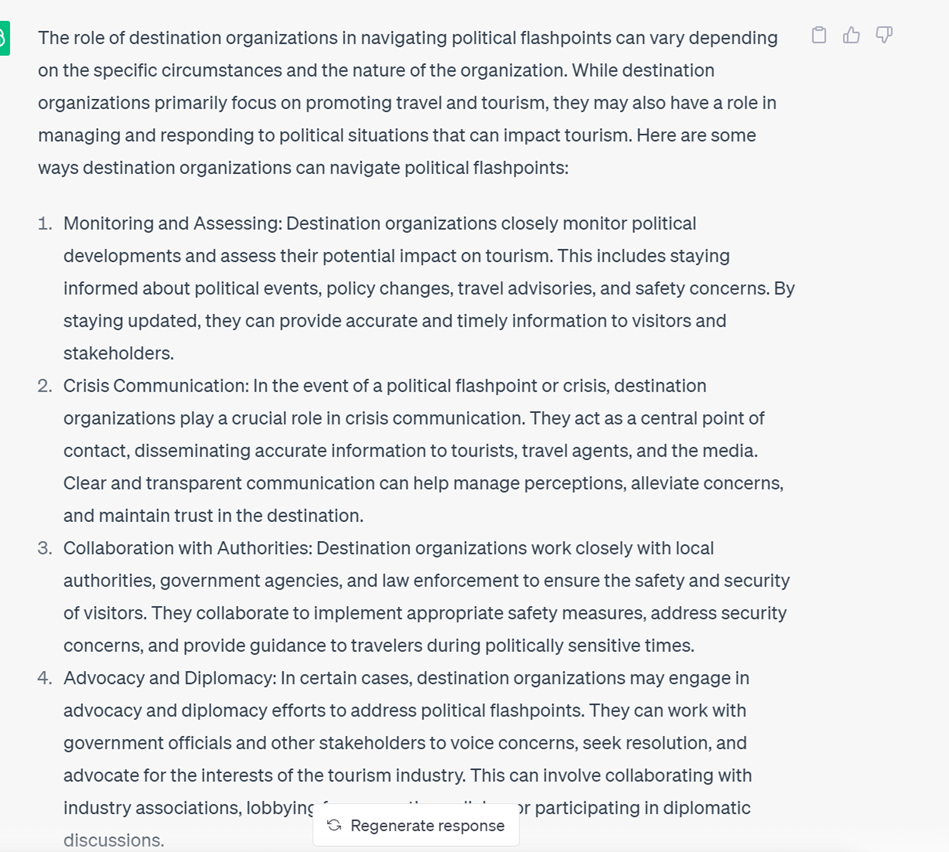
When asked to define how destination organizations can embrace the concept of Community Shared Value, it showed some limitations of the technology veering off course of the concept as created by our organization. While it mentions the concepts of local community engagement and community empowerment, it does not mention the need to make residents a community asset. Other interesting information added to the concept of Community Shared Value by the technology was cultural preservation and enhancement, philanthropic initiatives, and measuring the reported social impact for increased transparency and accountability. ChatGPT response underlines the importance of embracing Community Shared Value to ensure sustainable and inclusive tourism that benefits visitors as well as residents. This approach helps create a positive relationship between the tourism industry and the destination, leading to long-term success and mutual prosperity.
Question: How can Destination Organizations Embrace the concept of Community Shared Value?
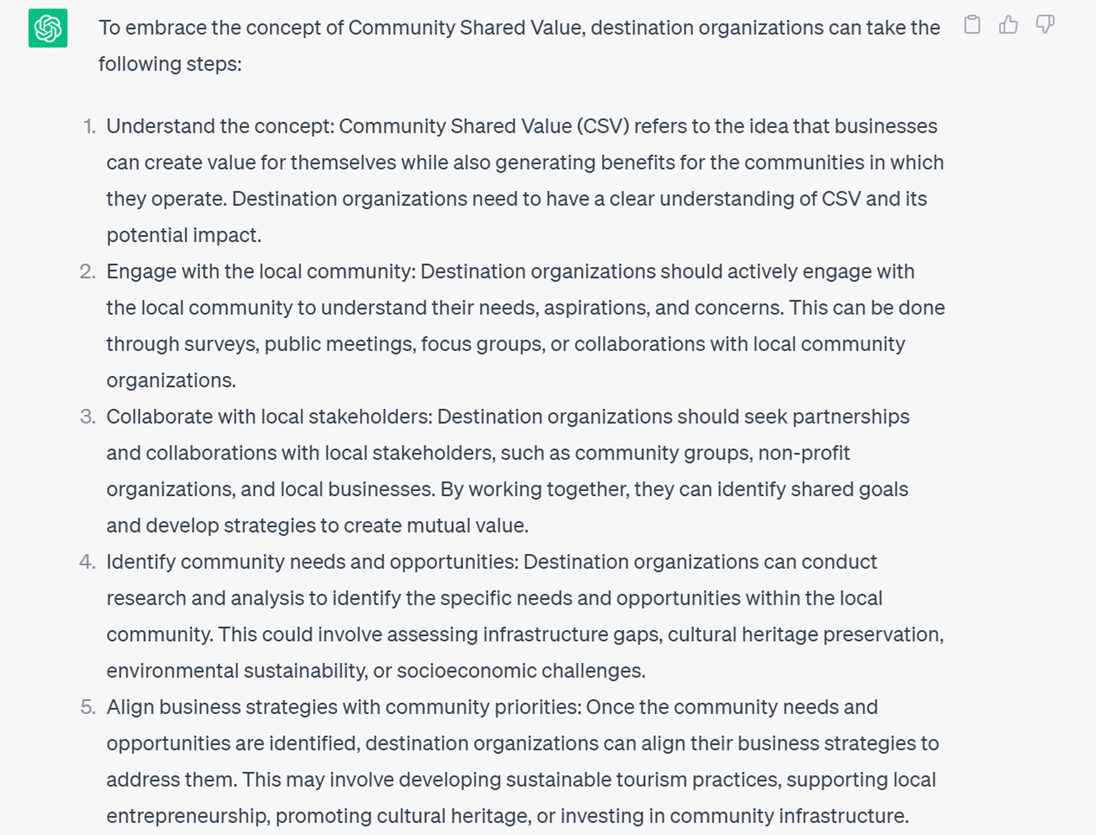
Destinations International defines Community Shared Value as a community asset that shifts focus of the customer as the resident. Our organization mentions the need to get additional stakeholder support within the community and moving away from solely relying on return on investment and visitation numbers as the measure of a destination’s success. Within the Community Shared Value concept are values of Passion, Awareness, Transparency, Inclusion, Engagement, Collaboration, Innovation, Stewardship, and relevance. Further, the Community Shared Value Workbook provides a roadmap for destinations to follow in increasing support amongst their communities. The workbook allows organizations deeper insight into the key values of a Community Share Value and how organizations can build a solid base of support amongst their residents.
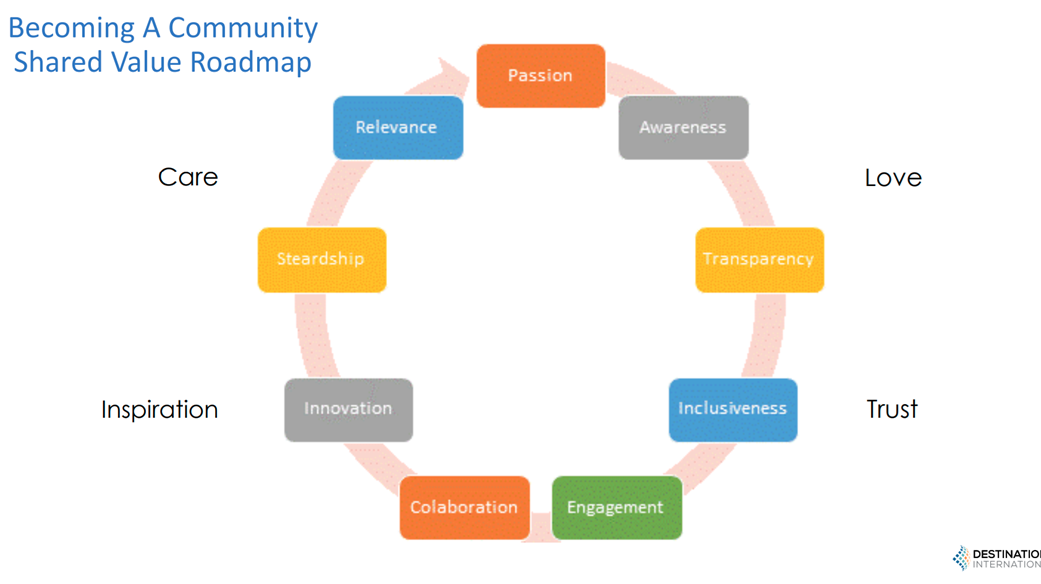
When I asked ChatGPT to define what the future of the industry may look like in reference to AI technology, it responded in a detailed way that embraced the concepts of personalization, tailored recommendations, data analysis, forecasting, virtual reality, virtual assistants, and data-driven decision making. The future of AI in the tourism industry is woven into the concept of predictive analysis and demand forecasting, which uses large volumes of data to generate accurate forecasts and predictions for tourist destinations, enabling businesses to make informed decisions based on consumer trends and preferences. Regarding sustainable tourism, the technology can help destinations achieve their goals of reducing waste, optimizing use of resources, and helping to promote environmentally friendly practices. Further, AI can help analyze market trends, patterns, and historical data to optimize pricing strategies for airlines, hotels, destinations, and attractions.
Question: How would you define the future of the Tourism Industry with Artificial intelligence?
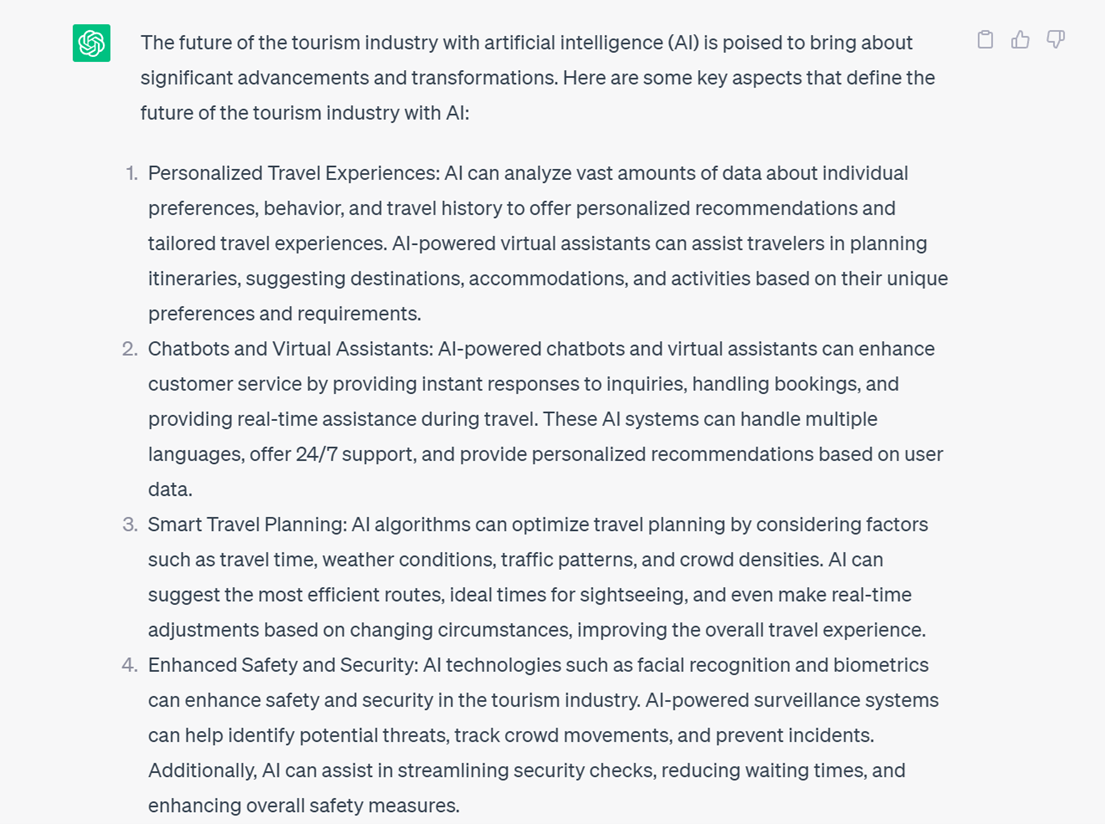
In summary, the future of the tourism industry with Artificial Intelligence has the potential to enhance personalization, provide improved customer service, and utilize data to drive decision making, resulting in an enhanced return on investment. Although the technology is hard to define and not widely understood it can be utilized to help define the role of a destination organization, help to navigate political flashpoints, find new ways to embrace the concept of being a Community Shared Value, and make predictions about the future of the tourism industry. By leveraging this modern technology destinations can utilize Artificial Intelligence to create new opportunities and transform the way consumers plan, experience, and engage with travel.


